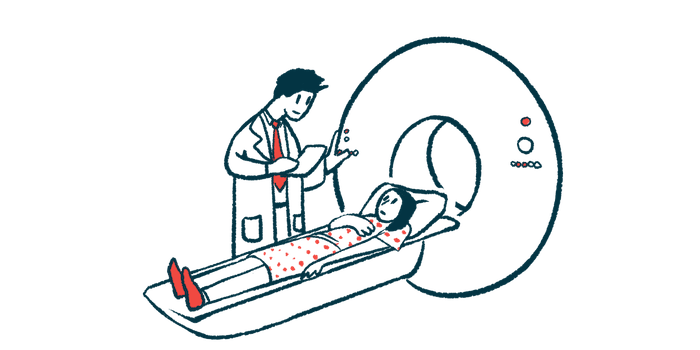No benefit to methotrexate over prednisolone in poor responders
Similar outcomes seen in study of cardiac sarcoidosis patients
Written by |

Most cardiac sarcoidosis patients respond to six months of first-line treatment with the corticosteroid prednisolone and show reduced active inflammation in the heart, according to a small study in Japan.
Cardiovascular events were less common among responders relative to those who respondly poorly, further confirming first-line prednisolone’s effectiveness with the condition.
Among poor responders, adding methotrexate to low-dose prednisolone resulted in similar outcomes as a second round of prednisolone, and none of the approaches led to significant reductions in heart inflammation.
These findings stand in contrast to the general idea that methotrexate is an alternative to prednisolone for poor responders and call for larger studies to assess the therapy’s efficacy in these patients, the researchers said in “Prospective Analysis of Immunosuppressive Therapy in Cardiac Sarcoidosis With Fluorodeoxyglucose Myocardial Accumulation: PRESTIGE Study,” which was published in JACC: Cardiovascular Imaging.
In sarcoidosis, clusters of inflammatory immune cells, called granulomas, form in various tissues and organs. Cardiac sarcoidosis feature granulomas in the heart, which can interfere with its ability to pump blood.
Prednisolone vs. methotrexate
Prednisolone, the active byproduct of prednisone, is considered the first-line therapy for cardiac sarcoidosis. Other immunosuppressive drugs, including methotrexate, can be prescribed as a second-line option to those who are intolerant or unresponsive (refractory) to prednisolone.
The effectiveness of prednisolone and alternatives hasn’t been properly assessed over time with cardiac sarcoidosis. To address this, and because methotrexate is often used as a prednisolone-sparing alternative, researchers in Japan evaluated the efficacy of first-line prednisolone and methotrexate as a second-line add-on treatment in people who were unresponsive to the corticosteroid.
They enrolled 59 cardiac sarcoidosis patients (74.6% women; mean age, 62.8) at a single center. All had active heart inflammation, which was assessed with positron emission tomography (PET) imaging with radioactive 18F‐fluorodeoxyglucose (FDG).
Like glucose (the body’s main source of energy), FDG is taken up by rapidly dividing immune cells with high metabolic rates, which PET scans can detect.
All the participants began with a standard six-month regimen of 30 mg of prednisolone a day, which was reduced monthly by 5 mg until the sixth month (5 mg/day maintenance dose). PET scans were performed before and after six months to assess its efficacy.
A significant reduction in abnormal FDG uptake after treatment was seen in the 56 patients who completed the treatment. No significant changes in heart structure or function were detected,
Blood levels of angiotensin-converting enzyme, a sarcoidosis biomarker, and soluble interleukin-2 receptor, an inflammatory marker, were also reduced, but those of BNP and troponin T, two markers of heart damage, weren’t.
Responders were those with a 70% or greater reduction in heart metabolic activity (FDG uptake by area), a sign of lower active inflammation. Most (83.9%) of the 56 patients were considered responders. The remaining nine patients (16.1%) were assigned to the poor response group.
Responders received another six months of prednisolone, but at a low dose (5 mg/day). Two (4.3%) showed an increase in heart metabolic activity by 12 months and were classified as having recurrent cardiac sarcoidosis.
Results with nonresponding cardiac sarcoidosis patients
Among the 11 nonresponder/recurrent patients, five were randomly assigned to receive methotrexate (6 mg/week) as an add-on therapy to 5 mg/day of prednisolone. The other six were randomly assigned to begin a second round of prednisolone, following the same dosing regimen as the first six months (high to low dose).
Reductions in FDG uptake were detected in three of five patients (60%) treated with add-on methotrexate and in five of six (83.3%) given the second prednisolone round.
“However, neither treatment had statistically significant favorable effects on [heart metabolic activity],” the researchers wrote, noting methotrexate “had no advantage over” a second round of prednisolone for poor responders to the initial prednisolone therapy.
No differences in lab tests and echocardiography measurements were observed between the groups.
Those who responded to the initial six-month prednisolone treatment were significantly less likely to have heart failure and sudden heart-related death over a median of 3.3 years of follow-up than those who showed a poor response.
“The current study found high efficacy of [prednisolone] and reconfirmed that it is a first-line drug of choice in the treatment of CS [cardiac sarcoidosis] with active inflammation in the heart,” the researchers wrote. “Further studies are needed to evaluate the therapeutic potential of [methotrexate] for active CS, including how [methotrexate] works when it is administered in higher doses or for longer periods.”






